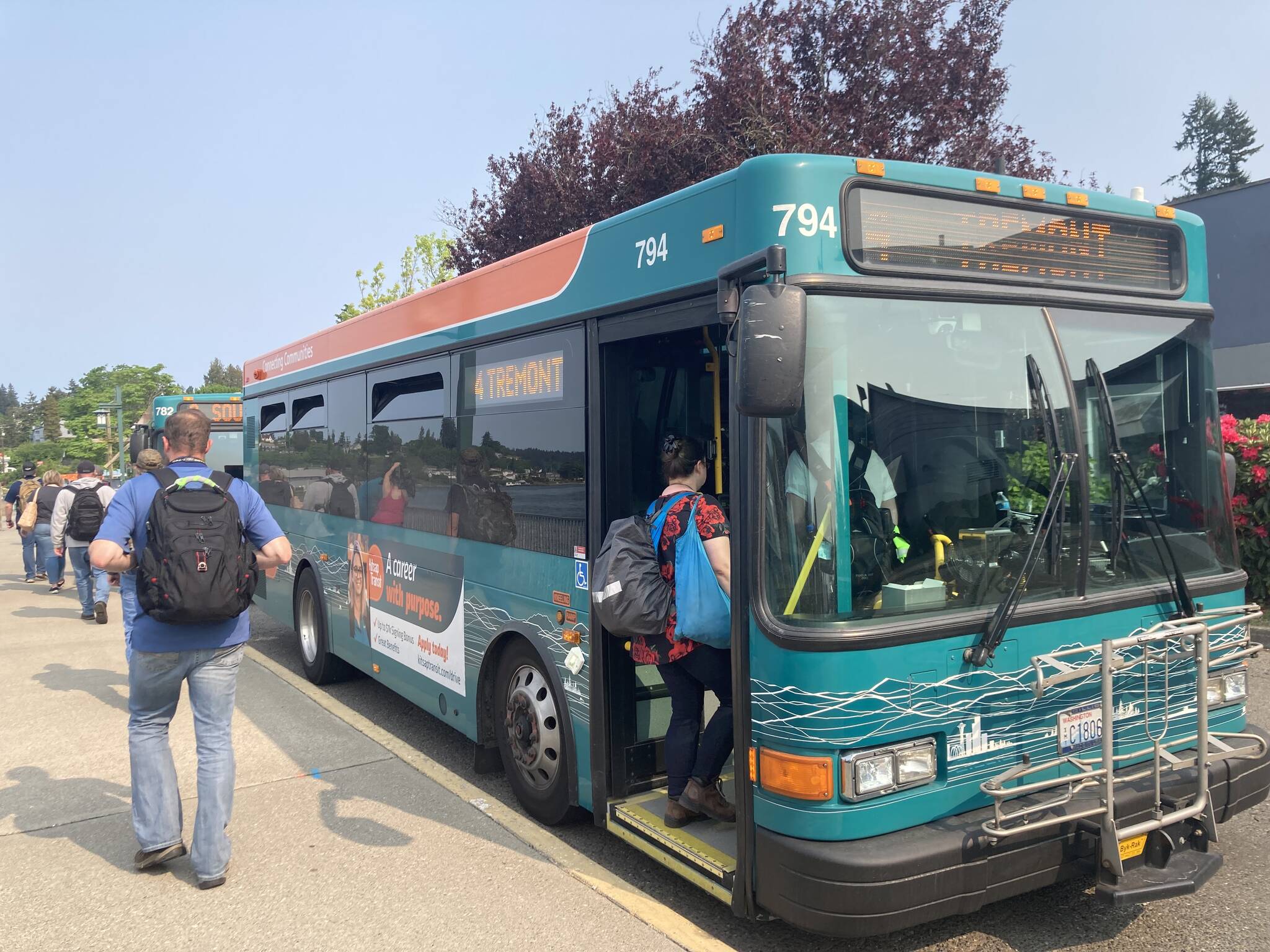Kitsap Transit has become the latest agency to consider reduced or even eliminating fares, a move leaders say could increase ridership tremendously but also could lead to additional taxpayer funding.
Transit agencies across the state, including KT, already offer some fare-free or reduced service to select groups, most notably for children age 18 and younger, a move influenced by the Move Ahead Washington Bill in 2022. Additionally, KT offers discounted pricing for low-income individuals and families, seniors, the disabled and Medicare card holders along with free rides for personal-care attendants and public safety officers.
While fare-free service was implemented briefly during the pandemic, only a few agencies have eliminated fares for some services altogether. Thurston County’s Intercity Transit is in the midst of its zero-fare demonstration project, which was extended until 2028 due to COVID.
Executive director John Clauson said it would bring about a challenging positive of an increase in passengers as he headed a discussion on the matter at the May 16 KT board meeting. “There’s systems that have experienced anywhere from 20% to 100% increase in ridership,” he said. “So, you’ve got to be prepared to have the appropriate amount of equipment and so on to be able to respond to that.”
How to pay for it is the bigger issue as KT is projected to bring in between $5.2 million and $5.8 million in combined transit and marine fare revenue this year. Finance director Paul Shinners said current financial conditions combined with a fare-free service would leave the agency with far less in unrestricted reserves and could even deplete reserves such as those in the Marine Services Fund by 2026.
“With our fare revenue, we’re well below our reserves in the outlook here,” he said. “Removing the fare revenue, we just don’t have any reserves. We would either have to cut our capital programs, we would have to reduce service or go back out to the voters for additional” funding.”
Kitsap taxpayers pay 1.1% in sales taxes toward KT, 0.8% for transit and 0.3% for passenger-only ferries, and it is unclear whether voters would approve another increase in today’s economic climate. Yet the idea of some kind of fare-free program involving just buses received positive feedback.
Commissioner Leslie Schnider of Bainbridge Island said, “I love the fact that we might get huge ridership, bus ridership going up if we did fare-free, which would be huge in terms of our climate progress, and so I guess would also agree that would be the priority versus doing fare-free on ferries as well. “
Commissioner Anna Mockler added, “I’m joining the choir of, yes, this is for routed buses only, and it does take single-occupancy vehicles off the road.”
Clauson, while not directly saying he supported a bus-only program, also noted the possible need to increase ferry fares in the future as Washington State Ferries looks to increase its fares again this year.



